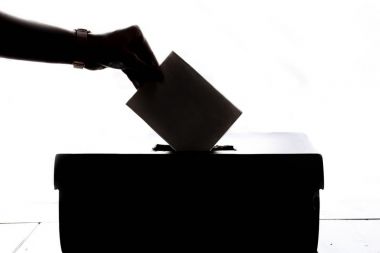Australia will soon head to the ballot box, but does my vote really matter?

With the announcement of an Australian Federal election for May 21, we are coming to the end of another long, drawn out, media driven campaign.
Finding consistency in another year of inconsistency has only exacerbated the difficulty of staying politically aware through the election.
Six weeks into the election and I am no closer to making a decision about my vote. The only consistent thing is that political parties and most politicians seem inconsistent with their approach to helping us understand why we should vote for them.
Am I voting for a leader?
Am I voting for a voice?
Am I voting for a candidate?
Am I voting for a party?
Am I voting based on a few key issues?
I want to vote pro-life.
I want to vote pro-environment.
I want to vote pro-refugees.
I want to vote pro-indigenous rights.
I want to vote anti-war, anti-racism, anti-violence.
But does anybody out there actually want my vote?
Six weeks into the federal election campaign we again have an incredible mix of lies, promises, hopes, dreams, half-truths, past misdemeanours surfacing (or hidden) and slogans confronting us each and every day.
The preferred Prime Minister poll can often be in direct contrast to the polling for the particular political parties.
Negative campaigning leads many voters confused and can often tell us more about why we shouldn't vote for someone, rather than why we should vote for a particular party. We get confused because we are told what a particular party has not achieved or what a party "might" do (only if elected), to our great country rather than what they will do.
Manifesto for an upside-down kingdom
So how does one decide whom to vote for?
How does a Christian decide?
Who should Christians vote for?
Who would Jesus vote for?
I think Christians are the same as most Australians with their attitude to our politicians. They never feel comfortable with any of the leaders in office, nor should they be.
What decisions can and should be made for all, so all Australians can share in the wealth of our great country?
Financial responsibility is a moral issue and I think we must consider how the political party in power aims to achieve it.
At whose expense do they achieve fiscal responsibility and surplus in the budget? What would a "moral economy" look like? We are the country of the "fair go", yet I feel our economic and political systems are becoming the domain of the wealthy and powerful. What impact does fiscal responsibility or a budget surplus have on us all?
All sides of politics should consider how Jesus spoke up for the poor and the vulnerable.
What type of kingdom did Jesus want?
Jesus said, "The Spirit of the Lord is on me, because he has anointed me to proclaim good news to the poor. He has sent me to proclaim freedom for the prisoners and recovery of sight for the blind, to set the oppressed free" (Luke 4 verse 18).
God's love for the outsider and the poor brings about a reversal of our value systems. Jesus wanted his followers to respond to his invitation by exhibiting radical generosity to serving the poor. This does not just mean the poor financially, but the poor in social status. These are the outsiders, the neglected - the single mums or dads, the old, children and youth, the disabled, the sick, the unemployed or unemployable, our indigenous communities.
Christians have a social responsibility to look after the poor, the vulnerable and the powerless. Jesus often referred to these people as the "least of these".
Jesus encouraged leaders to be the servants of others, living in peace with each other, seeking forgiveness for the hurts of the past, living a righteous life that rejects religious hypocrisy.
People of faith want people in positions of power they can trust. Where are our champions of the poor and vulnerable within our politicians? The church should be warned to not be associated with or solely attached to one side of politics.
"Our communities bear witness to the wounding effects of racism, prejudice, intolerance, evil, and injustice of all sorts. We are called to see with God's eyes and be awakened to the reality of the world around us. We are also called to be God's presence in this world, to be a part of the answer to its problems. We are not to be silent but are called, in some way, to take a stand" - Debbie H. Deane.
Let the Church be the conscience of the state and not it's master or servant.
Be encouraged to make all sides of politics consider the poor and vulnerable.
Who wins and who loses with each policy decision?
Politicians should never assume they have "our" vote.
Who would Jesus vote for?
I believe he looks for a new alternative people of God - those who are leaders in the "upside-down kingdom".











